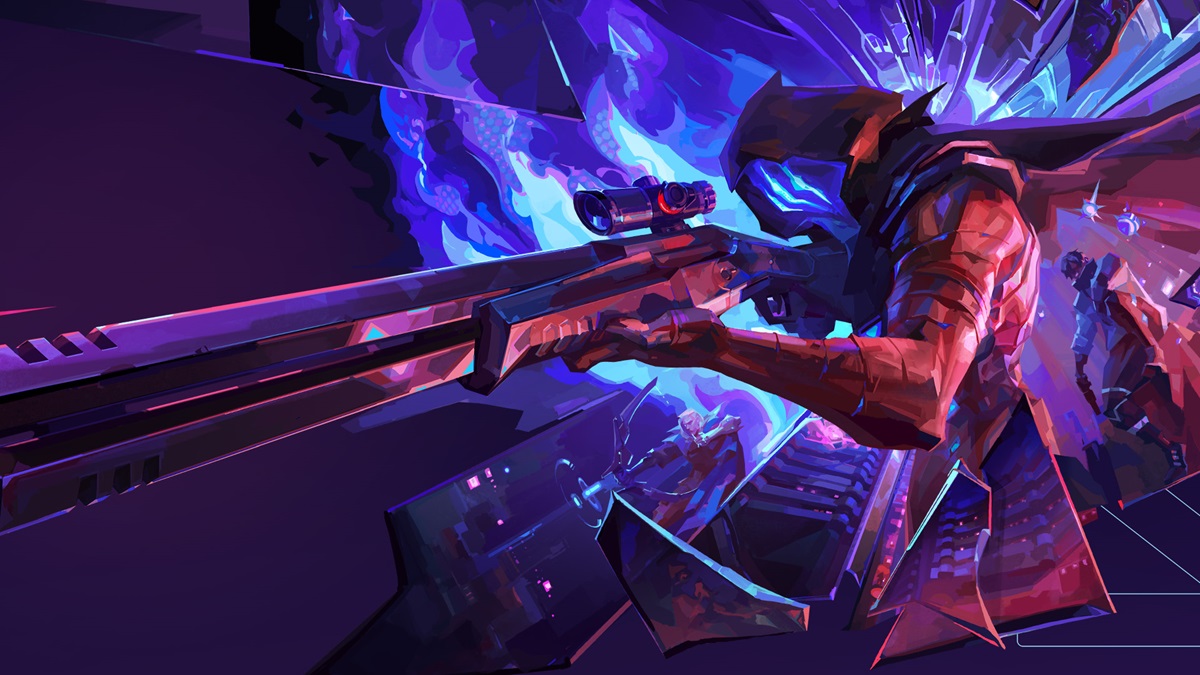Valorant, the 5v5 online multiplayer shooter game from Riot Games, depends severely on combined efforts. Squads in Valorant may have that one player who might be carrying them through rounds, but winning matches in Valorant requires the entire team to work together.
To achieve this, players need to communicate throughout a match in Valorant to have a better chance at winning matches. New players in Valorant can find it probably a bit too overwhelming when they match up with strangers online who are calling out shots, enemies and potential plays using phrases they might not understand.
So, to help players make sense of some of the most common terminology in Valorant, here are some common phrases in Valorant and what they mean:
One-shot / one-tap
One-tap refers to the elimination of a opponent with just one bullet, which is typically a headshot. One-shot is a teammate callout which means that the opponent has suffered enough damage, that they can be eliminated by just one more shot.
Link, Elbow, Short, Long, Heaven, Hell
These are strategic map callouts, representing locations on the map. Link, as the term suggests, is a pathway that connects two larger areas of the map. Short and Long refer to the pathways that exist from the attacker spawn up to the spike site. Short refers to the quickest route of the two, while Long is comparatively the slower route to the spike site.
Elbows are areas in the map which consist of tight corners. Elbows in Valorant are especially dangerous as players can be an open target from multiple angles in these areas.
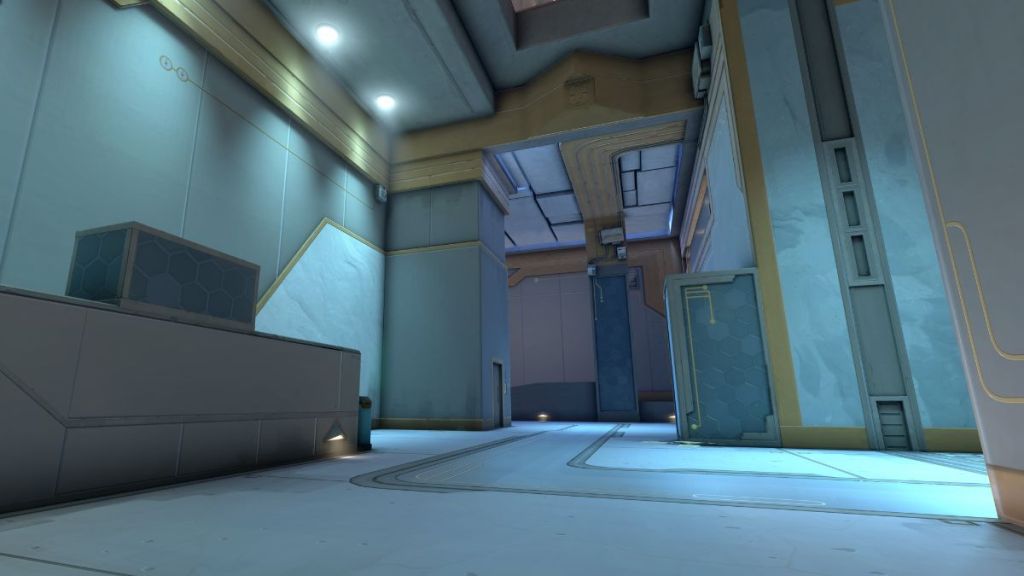
Heaven also refers to a location on a map which consists of high ground and acts as a natural nest for snipers to operate from. Hell is typically a playable section of the map just below Heaven. Each map will usually have specific callouts around these, such as C Long, so it helps to brush up on the common map terminology.
Eco round and Force-buy/full-buy/half-buy
Eco, short for economy, refers to the strategy around spending cash before the round starts. When a team or player chooses to opt for an “eco round,” it means that they are saving credits this round, so that they can have enough credits in the next round to buy a full-kit loadout.
Force-buy refers to a situation where the team or player opts to buy better weapons even though their funds are limited, in order to “force” forward momentum. Speaking of which, full-buy refers to purchasing one’s fully desired loadout.
Half-buy refers to a middle ground in spending credits, where players try to find a balance between kitting themselves up for the round while ensuring that they save enough credits to be able to get a full-buy in the next round.
Rush
Rush is an aggressive strategy where the team looks to quickly make their way together to the site in order to surprise the opponents and take control of the site.
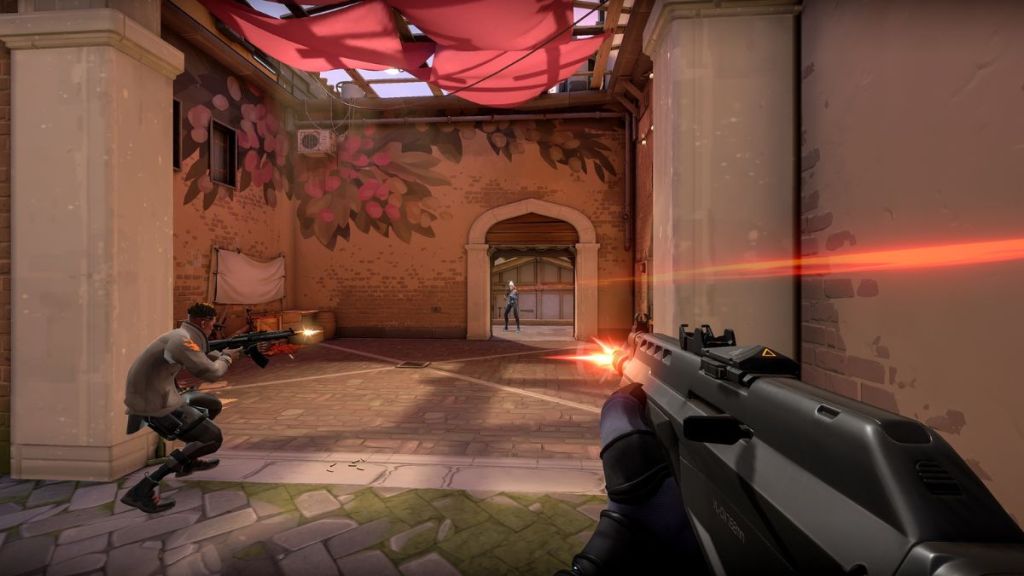
Fake
Fake can either refer to a fake defuse or fake clone during matches. Fake defuse is the act of pretending to defuse the spike, so as to bait the defending team into leaving their cover. As for a fake clone, it refers to Yoru’s ability to use a Fakeout clone, which is used to trick enemies into thinking that Yoru has teleported.
Lineup
Lineup refers to the use of certain abilities in Valorant in specific ways that depend on factors such as a player’s position on the map, elements of the map, the positioning of the player’s crosshair, and more. Lineups are most effective during defense, with agents such as Sova, Viper, and Brimstone having lineup angles which allow players to use their abilities from a safe distance to pressure the spike or site.

Molly
Molly is the informal name for Brimstone’s Incendiary ability.
OP
OP refers to the Operator sniper rifle in Valorant. It can also broadly mean overpowered, though you’ll probably encounter the weapon callout more frequently in Riot’s shooter.
Clutch
Clutch is another common gaming phrase in gaming, and not just Valorant. In Valorant, the Clutch announcement happens at the end of the round when the winning team’s last standing agent wins the round from a position of disadvantage.
NT
Typically used in chat, you can also come across players saying it in voice channel too. NT is an abbreviation for “nice try”, and it is usually said by teammates to a player who played admirably in the round.
Lurk
Lurk or lurking refers to instances where a player is roaming around the map, looking for potential frags in isolated areas.
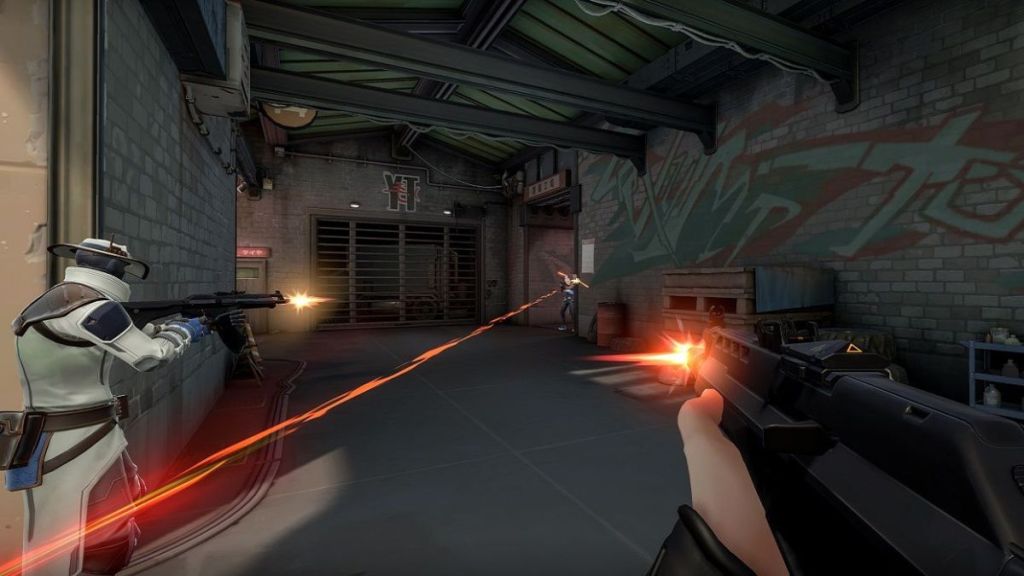
MB
MB is another chat phrase, and it is short form for “my bad”, which means that the player is claiming responsibility for a mistake they made.
Cubby
Cubby are specific zones on a map which are hidden from the general viewpoint and can be used to hide and wait for enemies in order to get a few surprise eliminations. Valorant agents like Harbor can even create their own cubbies, which can be used to develop small dead zones which enemies may overlook.
Flank
Flank, or flanking, refers to the act of hitting an enemy from the side or a different front, in order to split their attention and find openings.
Peek
A peek in Valorant refers to stepping out from cover to either locate or engage an enemy.
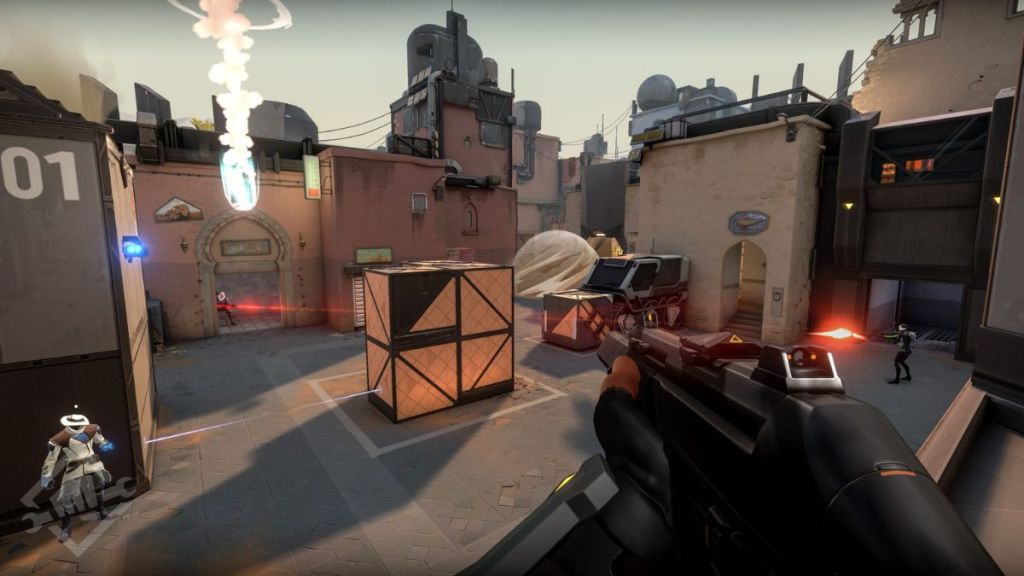
Res/Rez
Both of these commonly refer to Sage’s ultimate ability to revive a dead teammate during a round. It can also be a specific callout from a KAY/O, if they are downed during their ultimate ability, as they can be revived by any teammate for a short duration.
TP
TP stands for teleport, which is a callout to inform teammates that an enemy player has teleported.
Thrifty
The Thrifty announcement happens at the end of a round where the winning team’s total average spent during the buy round was at least 2,500 less than the losing team. This signifies that the winning team spent less on the loadout, and still won the round.
Smoke
Smokes in Valorant refers to the sphere-shaped clouds of smoke used by different agents such as Brimstone, Omen, Astra, and Jett. These smokes are used as a way to control the map and reduce the overall visibility of any section of the map temporarily.
Entry frag
Entry frag refers to a player who enters the hostile areas first, looking to grab the first elimination, and also learn about the enemy team’s positioning. Duelist agents in Valorant are typically expected to be entry fraggers, given they have a set of aggressive abilities to aid them in combat.
Wallbang
Wallbang means shooting at enemies through a wall in Valorant. There are some walls where it is possible to shoot through and still deal damage to opponents, which can be handy when dealing with entrenched foes.
Rotate
Rotate is a strategic callout in Valorant, which means that the team should stop their advance towards one particular spike site, and change course towards a different spike site instead. In some instances, it may also be used to switch to an alternate route for the same spike site, or indicate defenders shifting from watching one site to another.
